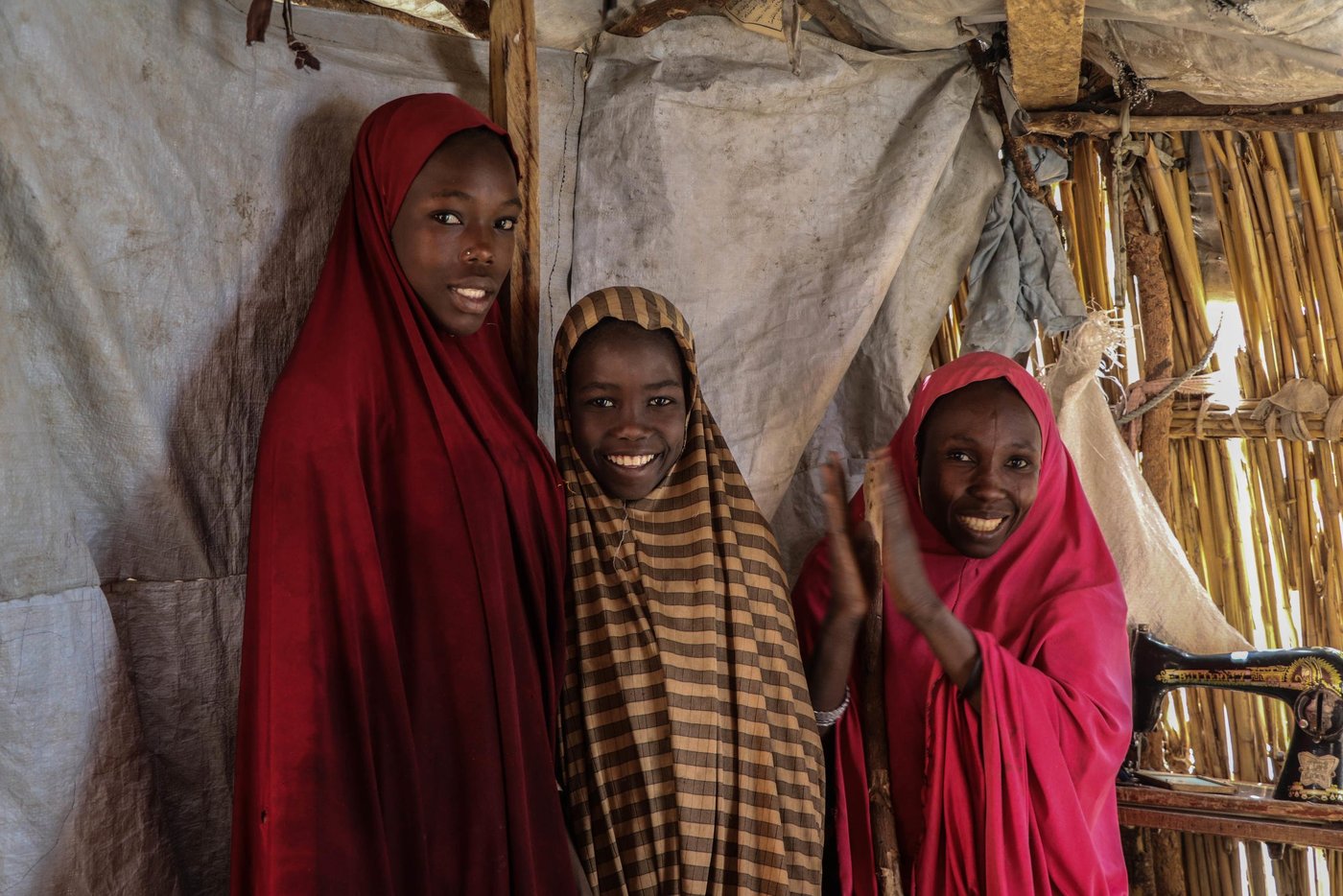Over six years ago, Hajja fled the violence raging in her hometown of Baga, on the shore of Lake Chad. She became one of the 8.7 million people who are in need due to the 11-year-long conflict in north-east Nigeria.
She sought refuge and found safety in Maiduguri. But the move from her hometown, with its bustling fishing and farming industries and vibrant market, to a place with little or no water came as a shock, another loss.
Because of the lack of livelihood opportunities, the overwhelming majority of displaced communities in Maiduguri struggle to cover their basic needs. Many people, especially women and children, are exposed to exploitation in various forms.
Saving for a rainy day
The Norwegian Refugee Council (NRC) works to give displaced people living in these difficult conditions a chance to build more resilient and stable lives. In Maiduguri’s displacement camps, we have provided cash grants to over 600 people. Hajja was identified as one of the people who would receive assistance.

The grant relieved the financial pressure she was experiencing and enabled her to create a business that would cater for her family’s needs. She used the money to buy a sewing machine, a few chickens, a goat and a ram. Her plan is to sell the livestock when they have been fattened for a profit that she will reinvest in her business.
“I used to be a trader back in Baga and I sold a lot of items. Today, even though it may be a small profit, I can make some money and even save for a rainy day,” shares Hajja, with pride. “My daughter goes to school and when she asks me for something she needs, I know I can give it to her.”
Helping small businesses to grow
In the same camp, Jemila, 38, also struggled when she arrived in Maiduguri from Baga six years ago. She initially managed to set up a small shop where she sold fried yams alongside her husband who made and sold cups of the local “mishai” tea. However, because they had a large family, they were unable to save much.
Then, Jemila also received a cash grant from NRC. This allowed her to invest in her struggling business.

“With the cash support I received, I have been able to expand the shop. Now I can sell household items, books and stationery,” says Jemila. “I will need to build a bigger shop soon because the store keeps getting bigger and I can make even more profit than before!”
In addition to providing cash assistance, we also trained the grant recipients in business management, bookkeeping and business writing skills to help their businesses thrive.
The cash assistance programme aims to empower displaced people, especially women, to take part in income generating activities and improve their financial security.


